UK Tories to reject half-in half-out Brexit: Lawmaker
A senior Conservative Party lawmaker of the British parliament has announced that at least 40 of his colleagues are ready to vote down a deal on country’s withdrawal from the European Union, saying they cannot accept a half-in half-out Brexit.
“Colleagues will not tolerate a half-in, half-out Brexit,” said Steve Baker, a former junior minister under Prime Minister Theresa May’s government who resigned in July in protest to the premier’s Brexit strategy.
Baker reiterated a position adopted by rebellious Tories that May’s withdrawal plan, if succeeded to generate a deal with the EU, would make Britain more dependent on the bloc in future.
The lawmaker is among many in May’s own Tory party who have accused the premier of being too lenient in talks with the EU. They have indicated that the number of Conservative lawmakers that could reject a final Brexit deal by May could even exceed 80.
May, who is fighting for her Brexit proposals ahead of a key EU summit in Brussels next week, also faces stiff opposition from the Labour Party, which has said that it would almost dismiss the withdrawal agreement under any circumstances.
If May fails to go through the House of Commons with her Brexit deal, she should either resign to allow another Tory politician to lead the government into new Brexit talks, or face the prospect of an early general election, which could see the Labour rise to power.
May’s spokesman said Monday that London was in the midst of some tough talks with the EU ahead of the bloc’s October 17-18 summit. The official indicated that the two sides had hit new snags in the talks, despite expressions of hope made last week showing that there could come an initial Brexit agreement in Brussels.
The future trade relations and the situation of the Irish border are still the two stumbling blocks in Brexit negotiations. Britain wants the EU to first set out its vision of future bilateral trade and then discuss a final solution on the future state of the border between EU member Ireland and the UK province of Northern Ireland.
The EU, however, insists London should first decide on the Irish border and then move on the talks to trade discussions.

The EU’s top Brexit negotiator Michel Barnier, who was expected to brief the EU’s executive body on the state of talks later on Wednesday, came out of a meeting with the leader of Northern Ireland’s dominant political party earlier in the day suggesting that the EU and Britain could still de-dramatize the Irish border issue.
Democratic Unionist Party (DUP) leader Arlene Foster, whose party props up May’s coalition government, reiterated after talks with Barnier that she and the UK government would never accept any border between the region and mainland Britain as a solution to avoid a hard border between the two Irelands.

“There is only one red line,” Foster told reporters in Brussels, adding, “We could not support any arrangement which could give rise to either customs or regulatory barriers within the UK internal market.”
Foster said, however, that she was optimistic about a Brexit deal in the coming weeks if there was enough political will on the two sides.
“I very much hope that there is a deal in a number of weeks,” she told the BBC, adding, “I want to see a deal that works for everyone and I think that is eminently possible if the political will is there to make it happen.”
May has resisted the EU’s offer for including Northern Ireland in the EU’s customs union after the Brexit date, which is March 29, 2019, as a backstop solution to avoid a hard Irish border. The British premier says moving the frontier to the Irish Sea would mean a separation of Northern Ireland from the rest of the UK. She has instead offered the EU the possibility to have the entire UK in the customs union for the two-year transitional period after Brexit and even beyond that until a solution is found for a free trade mechanism between the two sides.
The 52-48 vote in the June 2016 Brexit referendum which allowed Britain to leave the EU has proven to be very divisive within the country. Many have called for a second referendum or at least a vote that could give Britons the opportunity to decide on the withdrawal agreement.
The issue has also sparked fresh concerns about the integrity of the United Kingdom as many voters in Scotland and Northern Ireland who voted to stay in the EU want a reversal of the Brexit.
People in Scotland, who voted more than 62 percent in favor of the EU membership in the 2016 referendum, have been attending rallies over the summer to demand secession from Britain.

Leader of Scottish National Party (SNP) Nicola Sturgeon told an annual conference of the party in Glasgow on Tuesday that independence from the UK would be the ultimate answer to Scotland’s Brexit problem.
“Brexit is a serious problem for Scotland ... The only solution to that is to become an independent country,” said Sturgeon, reiterating that independence was a fact that would certainly happen for Scotland sooner or later.
Many fear a failure of Brexit talks would force Britain toward a no-deal situation where the country crashes out of the bloc leaving many issues unregulated. Both the EU and Britain are highly fearful of the scenario as it could deeply harm their economies.
A German institute said on Tuesday that a “hard” Brexit would mean more than 3 billion euros ($3.4 billion) of extra tariffs for German companies each year, saying Germany, the dominant economic power in the EU, would see its experts to the UK more than halved after a no-deal Brexit.
Lebanese parliament speaker rejects any postponement of elections
VIDEO | Gazans break Ramadan fast amid rubble of their destroyed homes
Iran seeks to strengthen strategic ties with West African countries: Defense minister
US envoy’s remarks on Israeli West Asia expansion shows Muslim world targeted: Houthi
Iran says any agreement with US must fully safeguard national rights, interests
VIDEO | Press TV's news headlines
Trump admin terminates 'lifesaving' aid programs to seven African countries: Report
IRGC warship returns home after first long-range deployment for BRICS naval drills


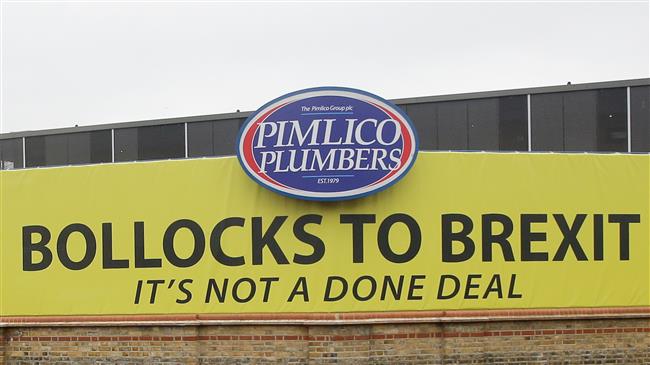
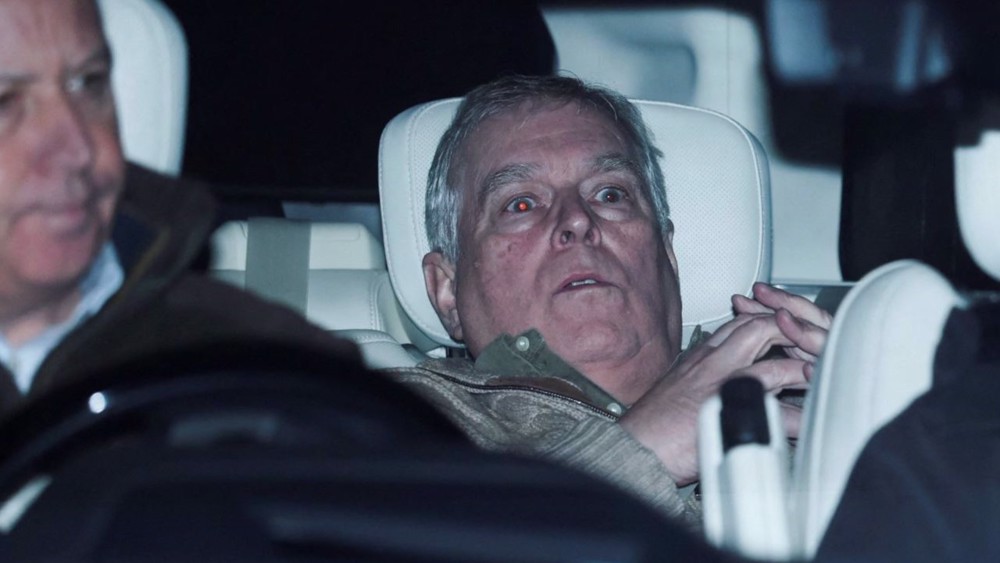

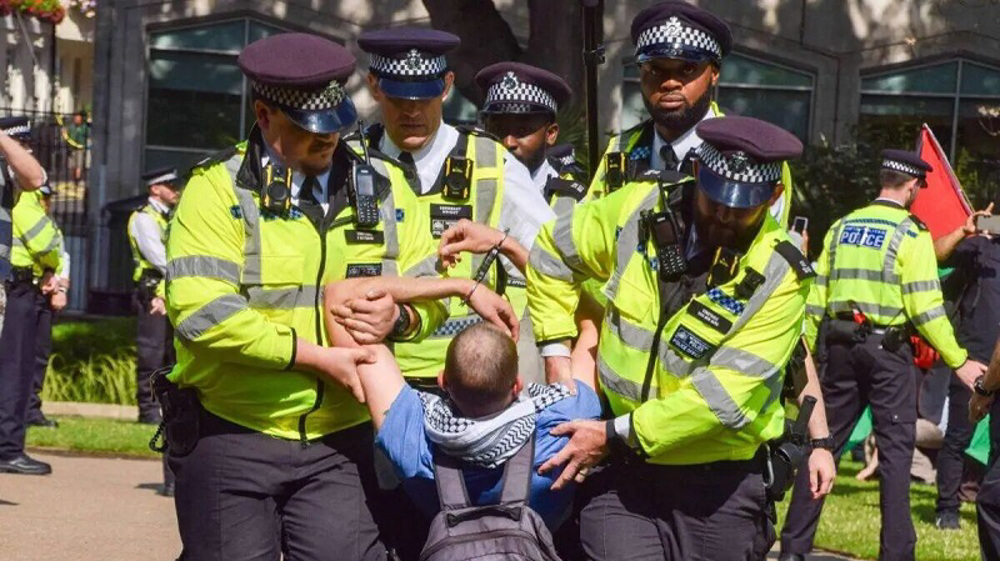



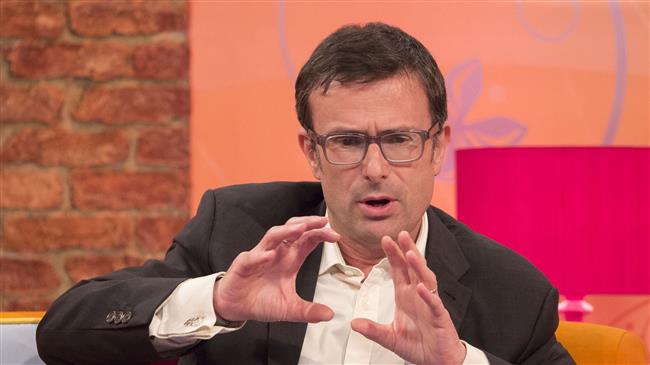
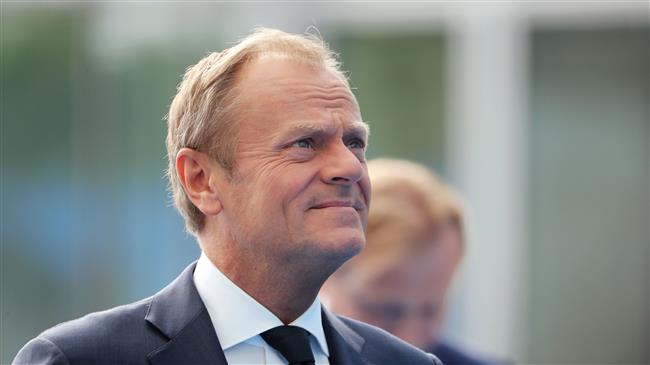
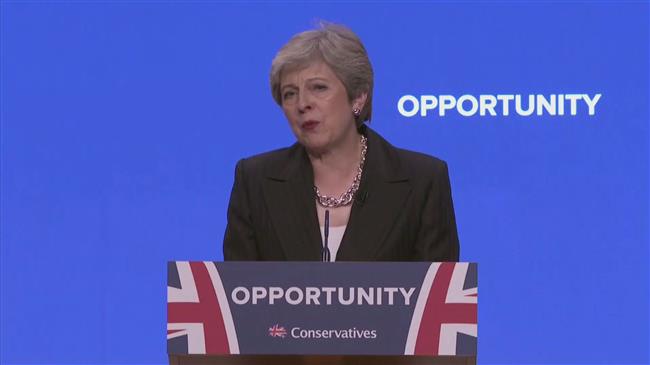

 This makes it easy to access the Press TV website
This makes it easy to access the Press TV website